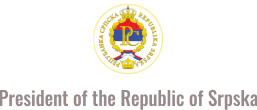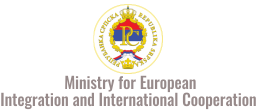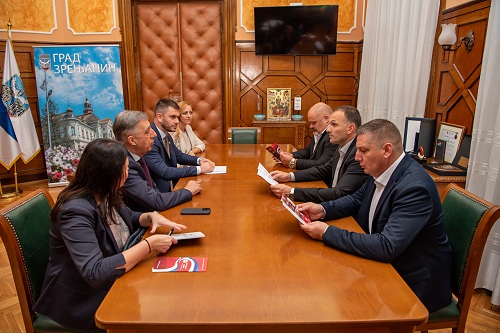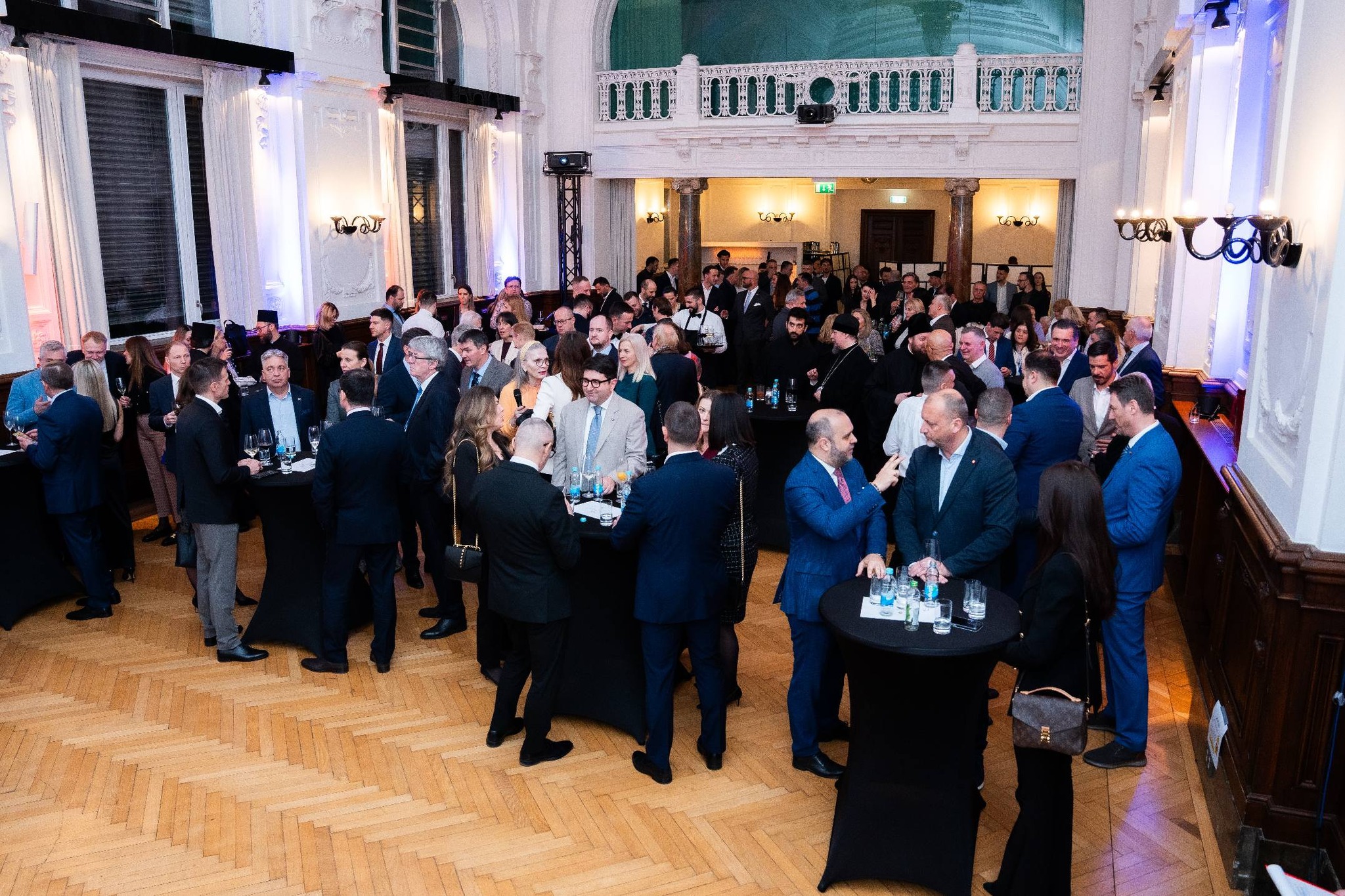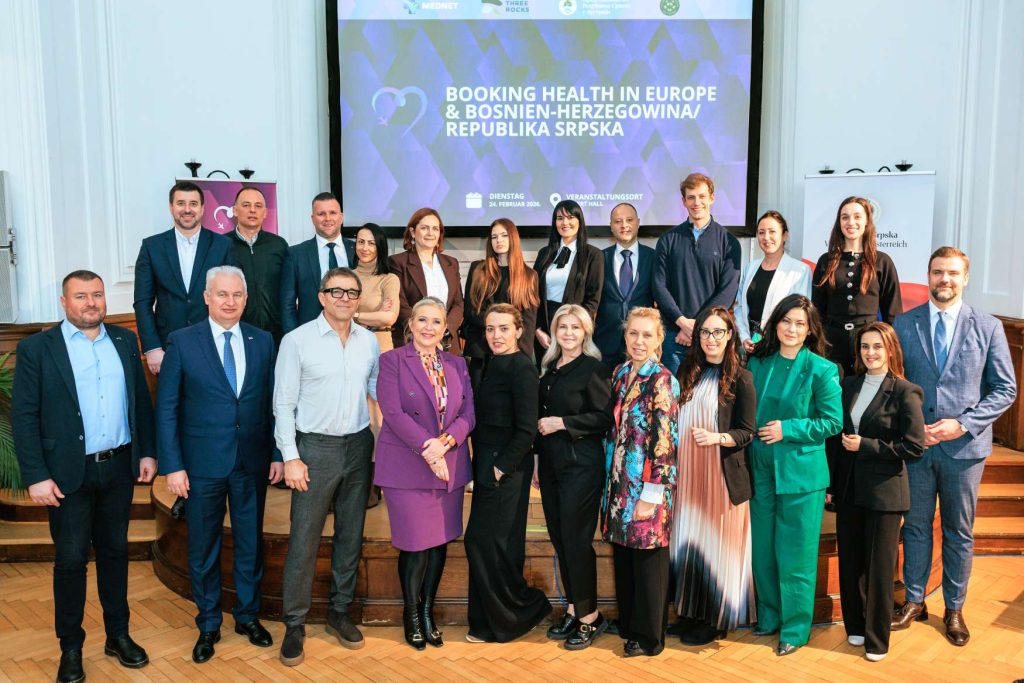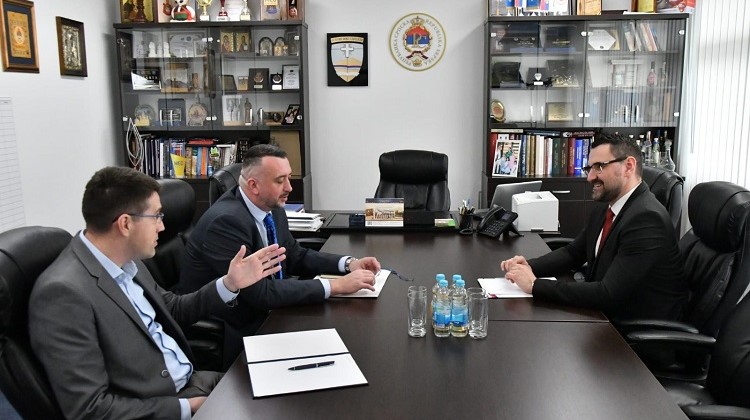The Mayor Simo Salapura and his associates organized a reception in Zrenjanin for a delegation of the Republic of Srpska consisting of Goran Vučić, ministry chief of staff, Mlađen Cicović, head of the Republic of Srpska Representation in Serbia, and Jelena Kusmuk and Tatjana Duvnjak, advisors at the Republic of Srpska Representation in Serbia.
‘We opened the event on 20 September at the National Theater in Belgrade in the presence of the highest officials of Srpska and Serbia with very clear messages, the messages that are also the motto of our event, that the most important task for our nation is that related to the preservation of our Cyrillic alphabet and that only united and collected with a completely clearly preserved national identity shall we ensure our future and thus know with certainty how to define everything that is the economy, that is the development of our nation, because also in the past our nation had shown that in fighting for its freedom, it was always sending a completely clear message that as much as it valued its own freedom, it valued also the freedom of all the nations living with us here’, said Cicović.
The chief of staff at the Ministry of European Integration and International Cooperation of the Republic of Srpska, Goran Vučić, said that Srpska Days in Serbia were held in Zrenjanin for the eighth consecutive year and were becoming a traditional event in this city.
‘Today we discussed establishment of economic cooperation between the city of Zrenjanin and the Republic of Srpska in general’, Vučić said.
He stated that the conclusion was that there was certainly room for the promotion of products from Srpska both throughout Serbia and in the city of Zrenjanin.
‘We will work to have the relevant organizations establish cooperation and to create a modality to bring Republic of Srpska products closer to Serbia, but also to bring the products of Serbia closer to Srpska’, said Vučić.
The Mayor of Zrenjanin, Simo Salapura, said that the traditional event Days of Srpska in Serbia profiled the identity of the Serbian people and that he was honored to have Zrenjanin on the agenda of the rich program and this year’s event.
‘Without identity, there is no nation, and our nations are traditionally connected, essentially connected by origin, and some settlements and parts of the city of Zrenjanin in particular with parts of the Republic of Srpska. I would like to note the excellent and fraternal ties with the cities of Bijeljina, Laktaši and Trebinje, with which we have long-standing cooperation, that we are now trying to improve in this way and see how and in what way the Drina can be a line of connection, rather than separation, and we have already heard some nice ideas that we can implement in the coming period’, said Salapura.
After the meeting, the delegation of the Republic of Srpska, together with the Mayor and his associates, attended the concert of Trag ethno group from Banja Luka held in the Cultural Center of Zrenjanin.
In Kraljevo, a delegation of the Republic of Srpska, consisting of Ljubodrag P. Ristić, PhD, president of the society Sveti Sava, prof. Aleksandar Milanović, PhD, from the Faculty of Philosophy in Belgrade, Aleksandar Pejaković, president of Student Theater assembly from Banja Luka and Ana Ljutić, associate at the Republic of Srpska Representation in Serbia, met at the city administration with Predrag Terzić, PhD, the mayor of Kraljevo and Miloš Milišić, assistant to the mayor for cultural events.
During the reception, the Mayor of Kraljevo, Predrag Terzić, said that cooperation with the Republic of Srpska was very good and that he expected it to be even better in the coming years.
The reception with the Mayor of Kraljevo was followed by Ljubodrag P. Ristić speaking at the Stefan Prvovenčani National Library on the topic of role of the Sveti Sava society in preserving Serbian culture and tradition then and now and Aleksandar Milanović on the topic of the Charter of Ban Kulin as the oldest monument of Serbian folk language and a symbol of Serbian culture.
The program in Kraljevo ended at Kraljevo Theater, where Banja Luka Student Theater performed the play Nakon predstave (After the Play).
Srpska Days in Serbia continued on 23 September 2023 in Subotica and Kruševac.
In Subotica, a delegation of the Republic of Srpska, consisting of Mlađen Cicović, head of the Republic of Srpska Representation in Serbia, academician Drago Branković, Secretary General of ASARS, academician Novo Pržulj and Zoran Govedar, corresponding member of ASARS, met with Stevan Bakić, the mayor, and city representatives Zagorka Panić, city manager, Srđan Samardžić, City Council member for the field of economy, and Aleksandar Medaković, director of Subotica Tourism Organization.
‘We are very satisfied with the discussion, especially for the participation of members of the Academy of Sciences and Arts of the Republic of Srpska, who conveyed everything that Srpska does and wants to do regarding scientific cooperation with Serbia’, said Cicović and added that they discussed the cooperation between Srpska and Serbia so far and what lay ahead in order to make it even better.
The Mayor of Subotica, Stevan Bakić, said that he was extremely honored that Subotica was one of the 11 cities hosting Srpska Days in Serbia.
‘Subotica has an extraordinary cooperation with the Republic of Srpska and all its institutions in all areas of social life’, said Bakić and noted that in this cooperation he had tremendous support and help from Cicović as the head of Srpska’s Representation in Serbia, and that the cooperation of the local self-government of the city of Subotica with the Republic of Srpska had been reaching a higher level every year.
In the Serbian Cultural Center Sveti Sava, the Academy of Sciences and Arts of the Republic of Srpska promoted the edition Sustainable Development and Management of Natural Resources of the Republic of Srpska, which was discussed by the academician Drago Branković, Secretary General of ASARS, academician Novo Pržulj, editor of the edition and prof. Zoran Govedar, PhD, corresponding member of ASARS.
The program in Subotica ended in the Great Hall of the City Hall by a concert of Trag ethno group from Banja Luka.
In Kruševac, a delegation of the Republic of Srpska, consisting of Tanja Đaković, assistant minister of education and culture, Danijela Pavlović, head of department at the Ministry of Education and Culture, Tanja Tuleković, director of the Public Institution Donja Gradina Memorial Area and Borislav Maksimović, advisor at the Republic of Srpska Representation in Serbia, met at the city administration with Jelena Todorović, assistant mayor, Svetlana Vidanović, head of social activities and Nikola Pantelić, director of Kruševac National Museum.
The Assistant Mayor Jelena Todorović welcomed the delegation of the Republic of Srpska and introduced them to the history and traditions of Kruševac and ongoing projects in that city, noting her extreme pleasure over the city of Kruševac’s hosting of Srpska Days in Serbia for the third time and that they would always be willing to exchange experiences, connect and cooperate with the Republic of Srpska.
The Assistant Minister of Education and Culture of the Republic of Srpska, Tanja Đaković, said that the Republic of Srpska and Serbia, regardless of borders, had a unique cultural heritage and therefore should nurture it together. She noted that in order to raise awareness of the need to nurture a culture of remembrance, it would be important for as many people from Kruševac, especially the young, to visit the Jasenovac Concentration Camp 1941 exhibition of photos and documents, opened last night at the National Museum in Kruševac, which would last until 6 October.
She said that such exhibitions were the right way for the truth to reach the public, especially the young, because the culture of remembrance was something very important.
‘Not so that we learn to hate others, but so that such horrors do not happen to us again’, Đaković stated.
Borislav Maksimović, advisor at the Republic of Srpska Representation in Serbia, said that Srpska Days in Serbia aimed to promote the culture of the Republic of Srpska and to present it to Serbia, as well as to create connections between the artists of Serbia and Srpska, so that after the event, they could continue and improve the achieved cooperation.
The Putujući Glumac Theater performed the play Sedmi dan (The Seventh Day) in Kruševac Theater.
Srpska Days in Serbia continued on 24 September 2023 in Sombor with a reception by the Mayor of Sombor, Antonio Ratković. A delegation of the Republic of Srpska, consisting of Goran Vučić, chief of staff at the Ministry of European Integration and International Cooperation, Borislav Maksimović, advisor at the Republic of Srpska Representation in Serbia and Miroslav Lazendić, president of the association Koreni, spoke with the mayor of the city of Sombor and his associates Anita Stojakov and Srđan Savić, City Council members, and Jovan Miljević and Branislav Svorcan, assistant mayors, about all forms of cooperation between the city of Sombor and the Republic of Srpska.
The Chief of Staff at the Ministry, Goran Vučić, told the hosts that they should know that they had friends and brothers in the Republic of Srpska, and that the Government of the Republic of Srpska was always at the service of all cities and municipalities in Serbia.
‘It means a lot to us that Sombor is hosting the Days of Srpska in Serbia. That event is one of the most beautiful happenings, where we try to promote all the potentials of Srpska, which are many. We are doing everything to bring them closer to the citizens of Serbia and we will do it even better and even more’, said Vučić and thanked Somborians for their warm reception.
Advisor at the Republic of Srpska Representation, Borislav Maksimović, said that Somborians had always showed respect for the Republic of Srpska and looked after the people coming to this city from across the Drina for various reasons and during difficult times. He also noted that people originating from the territory of the Republic of Srpska had certainly contributed to the development of Sombor.
The Mayor of Sombor, Antonio Ratković, noted that thus far Sombor had had good cooperation with Višegrad and Istočno Sarajevo, as well as with Trebinje.
‘Until now, we have had good cooperation with cities and municipalities in Srpska, but we want to improve it, especially in the fields of culture and education’, said Ratković.
The ethno group Trag from Banja Luka had a concert at the National Theatre.
The Days of Srpska in Serbia event continued on 25 September 2023 in Čačak and Bajina Bašta, with the performances by One Tri band from Banja Luka and Katera musical group from Istočno Sarajevo, and the presentation of the edition Sustainable Development and Management of Natural Resources of the Republic of Srpska.
In Čačak, the Mayor of Čačak, Milun Todorović, and his associates received a delegation of the Republic of Srpska, consisting of Mlađen Cicović, the head of the Republic of Srpska Representation in Serbia, academician Drago Branković, secretary general of ASARS, academician Novo Pržulj, Zoran Govedar, corresponding member of ASARS, Jelena Kusmuk and Tatjana Duvnjak, advisors at the Republic of Srpska Representation in Serbia.
The meeting discussed the potential for better connecting Čačak and the Republic of Srpska, continuing to nurture common traditions and culture, and supporting all projects and programs aimed at cooperation, in particular among youth, but also among cultural institutions.
The Mayor of Čačak, Milun Todorović, said that the Serbs in Srpska and Serbia were one nation and that he was looking forward to youth cooperation in all areas, especially economic and scientific cooperation.
‘Our Fruit Research Institute, which is one of the best in Europe, Technical Sciences Faculty, Agricultural Economics Faculty and Science and Technology Park - the expert scientific community are at your disposal. We are always willing to fund study trips and education of our professors wherever you say in Srpska’, Todorović added.
He noted that Čačak had excellent cooperation with most heads and mayors of municipalities and cities in the Republic of Srpska.
‘That is important because without a strong Serbia, there is no strong Srpska, and less than the strongest possible Srpska makes us weak. We are on the same path and we want to strengthen the ties to as deep and as strong as possible. We respect all religions and nations, but we must know that we are Serbs, Orthodox, that we also want Serbian culture and Serbian economy and exchange of Serbian goods’, said Todorović.
After the reception with the Mayor, the Head of the Republic of Srpska Representation in Serbia, Mlađen Cicović, said that relations between Serbia and Srpska had been at a very high level for the last 10 years.
‘For the first time, we have a situation where the Republic of Srpska and Serbia jointly define all strategic projects and agree together on the use of natural resources’, Cicović said.
He noted that the most important thing was to engage in the activities related to the preservation of the identity of the Serbian people, preservation of our culture, tradition, our Serbian language, our Cyrillic alphabet and our Orthodox faith, and pointed out the need for unity and sobornost, stressing that the goal of Srpska Days in Serbia was precisely cultural cooperation and connecting and networking of our people, so that they can continue to cooperate and develop the projects aimed at strengthening and deepening Srpska-Serbia relations.
Before that, ASARS members and Head of the Republic of Srpska Representation in Serbia discussed future cooperation in the field of agricultural development and natural resources conservation with the dean and professors of the Faculty of Agricultural Economics.
Katera musical ensemble from Istočno Sarajevo held a concert in the Kultura Institution in Bajina Bašta.
In previous days in Bajina Bašta, Drina Youth Center from Bajina Bašta, supported by the municipality of Bajina Bašta organized the exhibition on Roman Municipium Archaeological Museum Skelani Srebrenica and book promotions of Skupo plaćena pobeda (Victory paid dearly) Srebrenica 1992-1995, authored by Cvetko Stojkanović, Zločin genocida nad Srbima u Srebrenici u Drugom svetskom ratu (Crime of genocide against Serbs in Srebrenica in the Second World War) by Drago Mastilović and Zločini okupatora kroz zbirku dokumenata iz arhiva zemalјske komisije BiH za utvrđivanje zločina okupatora i njihovih pomagača (Crimes of the occupiers through a collection of documents from the archives of the BiH State Commission for determining the crimes of the occupiers and their collaborators) by Danijela Mrda. Also, this supplementary program included performance of the play Magareće godine (Donkey years) in Bajina Bašta by DIS Theater from Banja Luka.
Source and photo: Republic of Srpska Representation in Serbia
